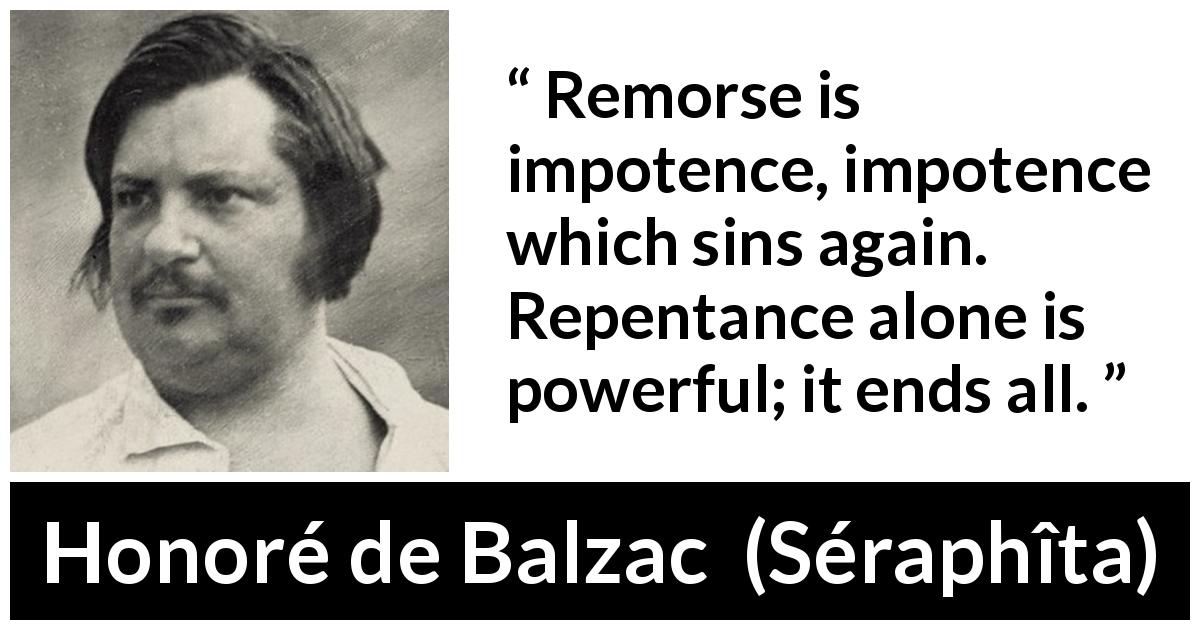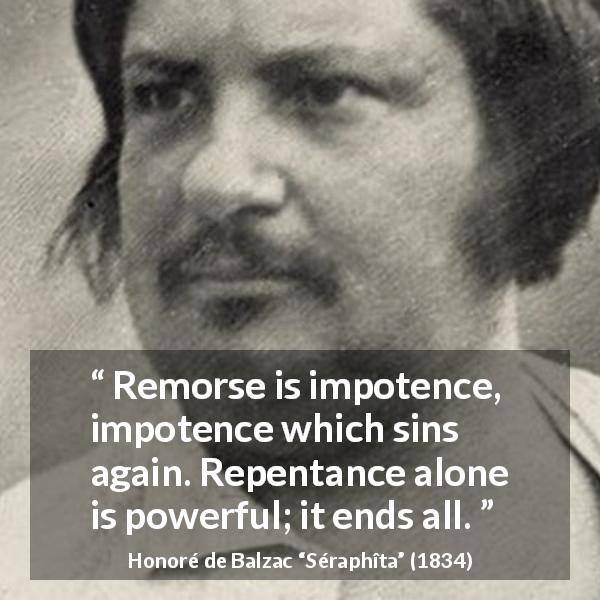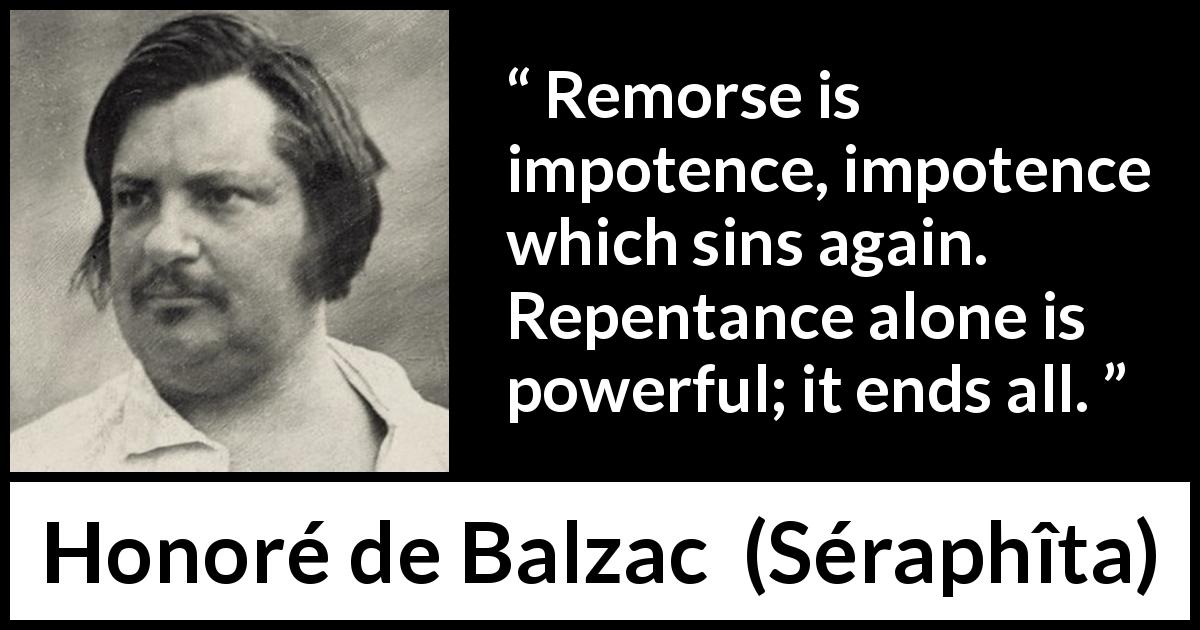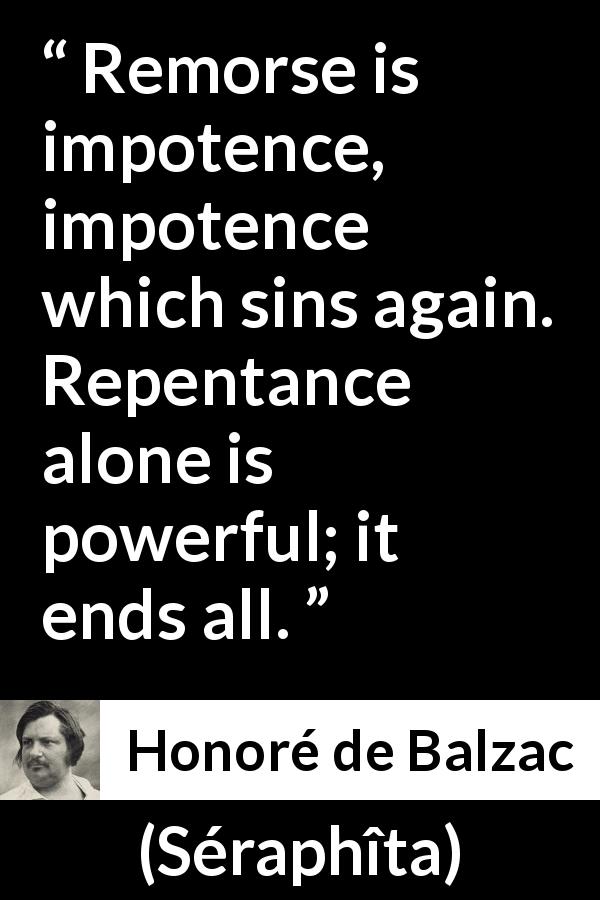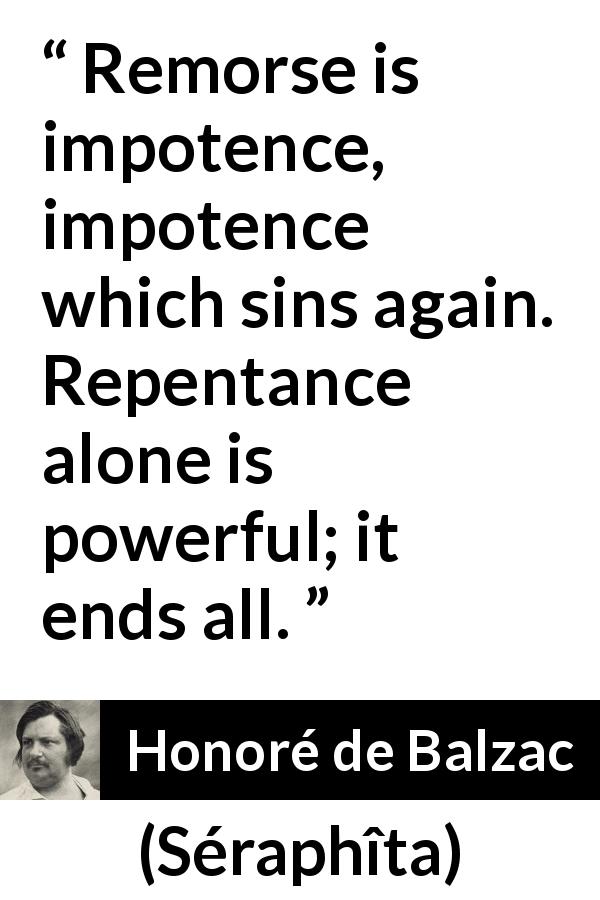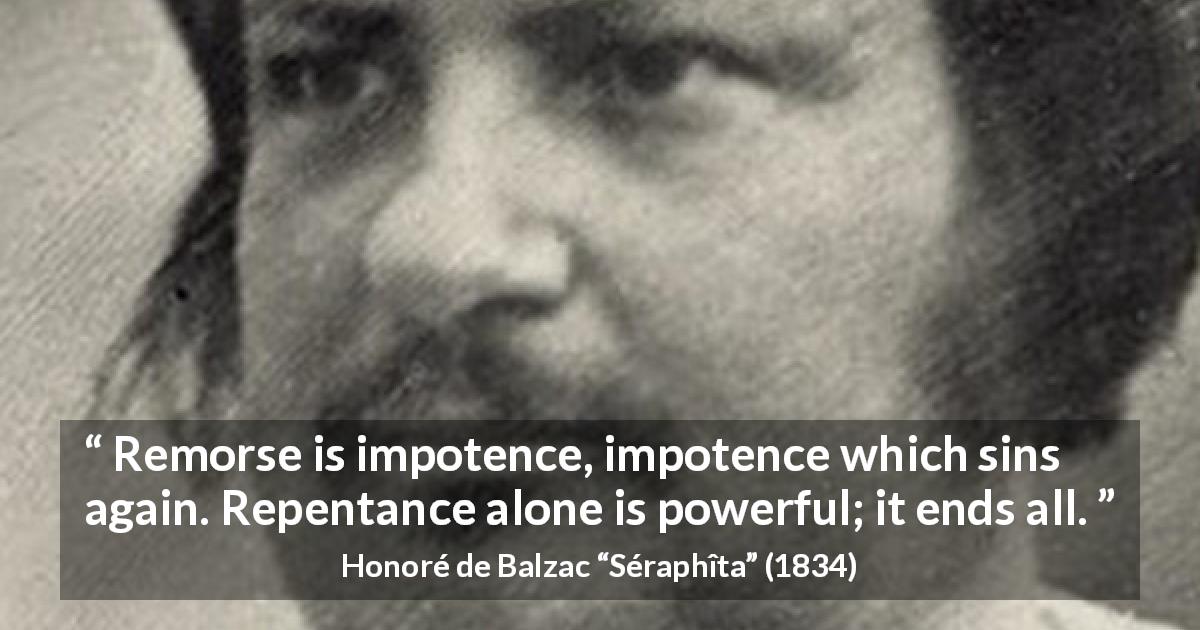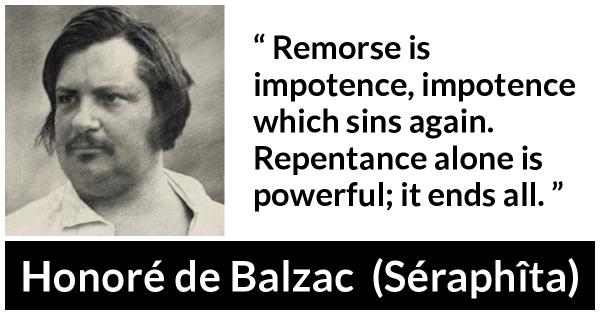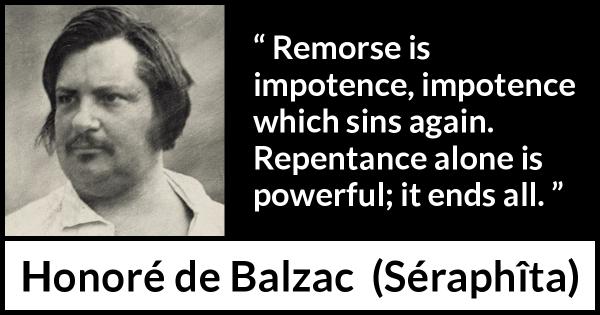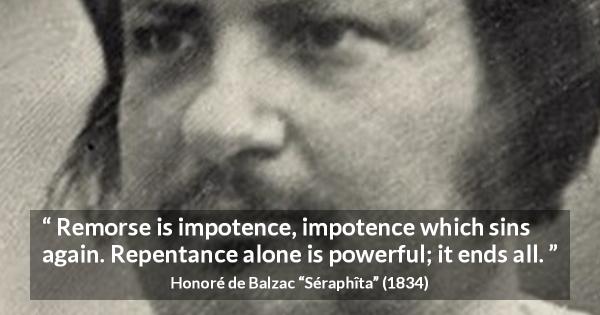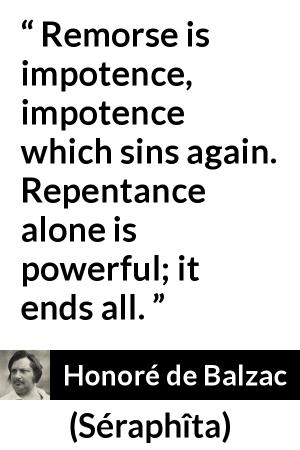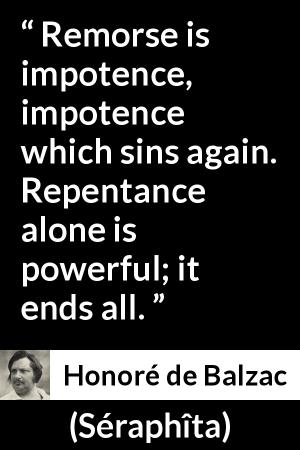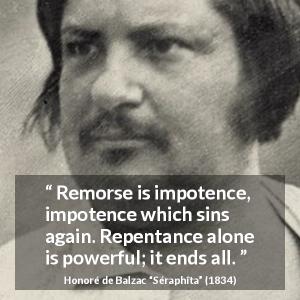“ Remorse is impotence, impotence which sins again. Repentance alone is powerful; it ends all. ”
Honoré de Balzac, Séraphîta (1834). copy citation
| Author | Honoré de Balzac |
|---|---|
| Source | Séraphîta |
| Topic | power remorse repentance |
| Date | 1834 |
| Language | English |
| Reference | |
| Note | Translated by Katharine Prescott Wormeley |
| Weblink | http://www.gutenberg.org/files/1432/1432-h/1432-h.htm |
Context
“But neither his knowledge, nor his actions, nor his will, had found direction. He had fled from social life from necessity; as a great criminal seeks the cloister. Remorse, that virtue of weak beings, did not touch him. Remorse is impotence, impotence which sins again. Repentance alone is powerful; it ends all. But in traversing the world, which he made his cloister, Wilfrid had found no balm for his wounds; he saw nothing in nature to which he could attach himself. In him, despair had dried the sources of desire.”
source
